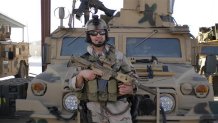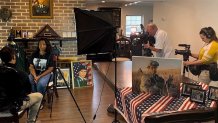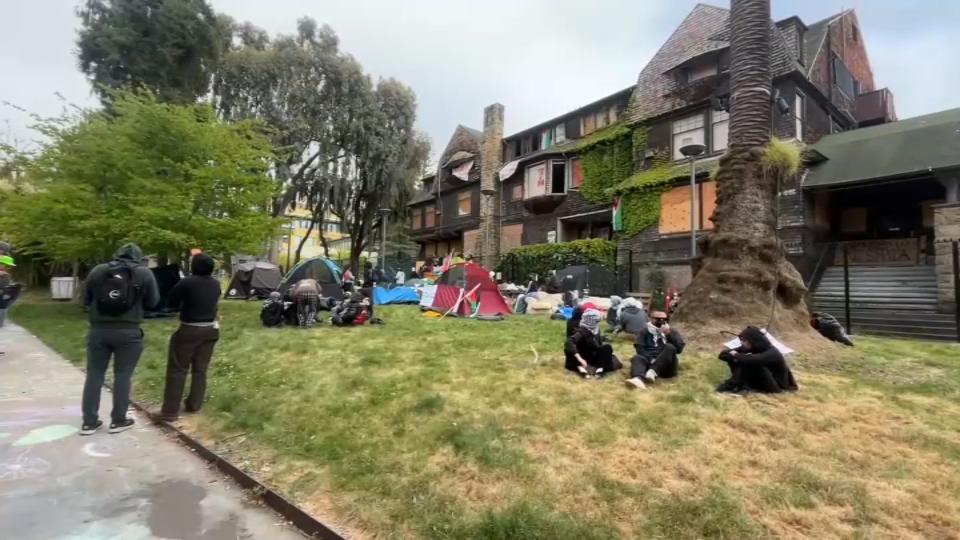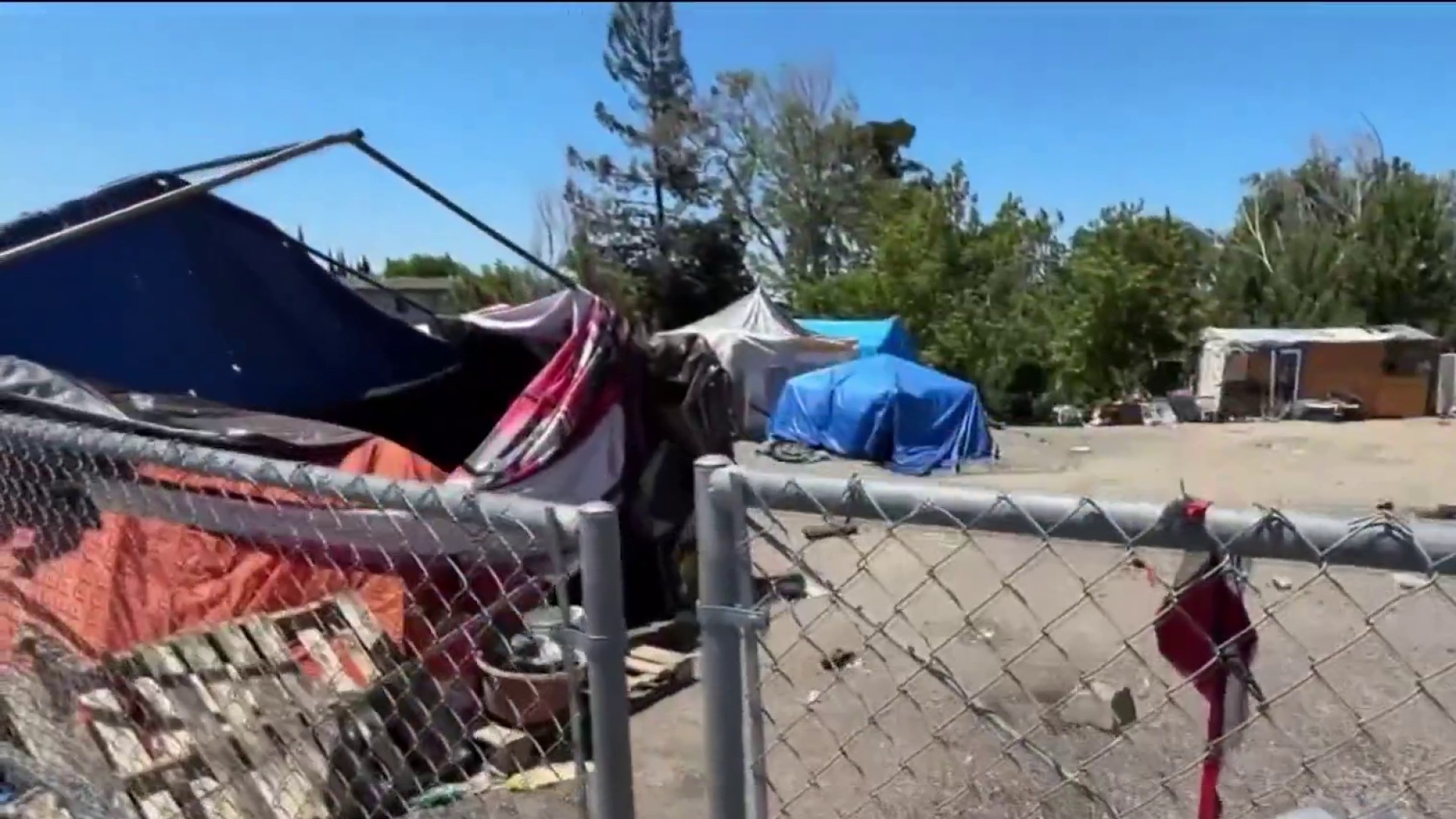On December 26, 2003, Kristine Flores’ brother, Michael Mihalakis died while serving in the US Army in Iraq.
It is a pain that two decades have done little to diminish.
"It's like you have this big hole in your heart and nothing can fill it,” Flores said.
Flores, a producer for NBC Bay Area, has done many things over the years to honor her late brother: getting a street named after him in their hometown of Milpitas and starting a program where veterans could get free parking on college campuses.
Get a weekly recap of the latest San Francisco Bay Area housing news. Sign up for NBC Bay Area’s Housing Deconstructed newsletter.

But in 2018, Flores found a way to not only honor her brother but bring a bit of healing to a Navy veteran and dozens of Gold Star families across the country.
It started with a Facebook post by Keith Sherman to a group for Gold Star families that Flores belongs to. After 26 years of active service, Sherman was about to retire and he had a plan: travel to all 50 states and interview the family of a fallen servicemember in each.
Local
“I wasn't really in a great place,” said Sherman.” I just wanted some way to try and heal and find a way that I could go across the country, meet people and heal in that process and not be relegated to the psychotropic meds.”
Sherman’s Facebook post was a request for families to interview but when he connected with Flores over the phone and learned she worked in television he realized she could help him in a different way: teach him how to do interviews.

“He goes, 'I don't know how to do anything.' Flores recalled. “So you don't know how to operate a camera? Nope. Lighting? Nope. Video editing software? Nope. Have you interviewed anyone before? Nope.
Initially reluctant, Flores agreed and ran Sherman through what he jokingly referred to as “media boot camp.”
Flores, alongside her husband Anthony, gave Sherman the knowledge and tools to complete his journey of healing.
When Sherman’s tour began, Flores helped spread the word.
"I got coverage in each market that he went to so people would come out and do stories. He got coverage in every market that he went to,” said Flores.

But as Sherman’s state-to-state expedition continued, Flores’s support expanded from just practical to emotional.
“There were probably like three times he called me during this drive. He was like, 'I don't think I can continue. I don't think I can do this anymore. It's just too painful. It's just too hard to sit and hear these horrible stories,” to which Flores replied:
“I would just tell him, 'You can't. You can't quit on these families. You can't quit on yourself. You can't do it. You can do it.' And he'd be like, 'Oh OK.' Bring him back down a little bit. I was like, 'This is what you wanted to do. You wanted to honor the families. You wanted to honor their sacrifice and their loss.'"
Her words of encouragement helped Sherman push past the emotional barricades that stood in his way.
“She was the person to cheer me up and push me back out there. Like, 'Listen you can do this. This is really hard,’” said Sherman.
Flores’s pushback helped Sherman push on.
He eventually made it to all 50 states including stops in Alaska and Hawaii.
More importantly, he found what he was looking for – healing.
"This journey brought about for me this change that I don't think I could've ever gotten anywhere else,” said Sherman.
Flores tends to agree:
“The person he was at the end of that journey at the Library of Congress and really truly the person that he is now is not the same as what it was when I first met him. So I think that's what the whole point was. Is helping him. Helping the families. Helping me and now we're all in such a better place.”



